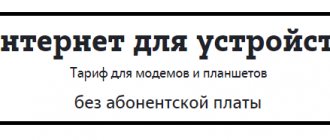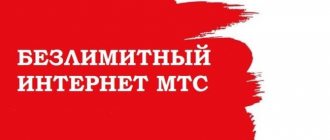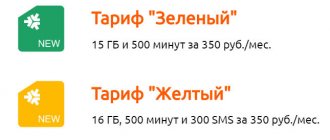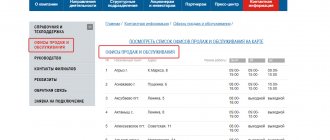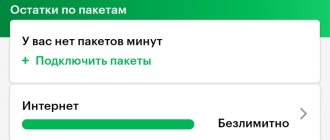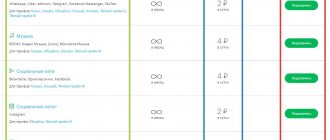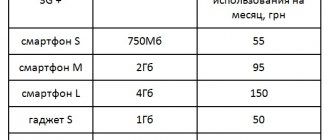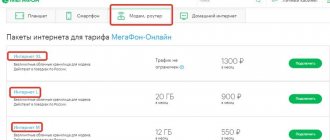According to TNS, out of 82 million RuNet users, 50 million access the network via smartphones and tablets. Moreover, in the 1st quarter of 2015, this “mobile” audience grew by 90% compared to last year.
Firstly, we are all in a hurry to monitor social networks in real time and post photos and videos there (whoever posted a lone picketer, a strangely cheap parmesan or a fresh litter of puppies near the metro earlier, did well).
Secondly, more and more people store photos, videos, presentations and other data in the “cloud” and download them from there when needed, instead of carrying flash drives in their pockets or worrying about the safety of their hard drive (at the same time wondering what they can take from there to clear the place). Not to mention the habit of always and everywhere being in touch and commenting on the lives of friends and acquaintances from all over the world without getting out of bed.
A reasonable question arises: how much Internet traffic do you need? 1.5 GB, 3 GB, which operators proudly announce in advertising leaflets - is it a lot or a little? We will try to calculate the “average temperature in the hospital” - the standard needs of an active Internet user on a smartphone.
Around the world per megabyte
One website page weighs from 50-60 KB for a page of text and up to 200-500 KB for a page with photographs and pictures (for example, any illustrated news is at least 200 KB). And a review with a video weighs several megabytes.
One listening or downloading of an audio clip is 3-5 MB, a movie - from 700 MB, watching streaming video (ivi.ru, for example) - plus 700 MB, online TV and Skype video chat - the same. Audio communication via Skype (and any other IP telephony) is about 128-130 KB per minute.
Social network pages weigh the same as regular websites, the caveat is that they are constantly updated, which also means traffic. By the way, it’s worth setting aside a certain number of megabytes for updating current applications and downloading new ones, checking mail in the background.
Mobile Internet traffic of smartphone users in 2014 grew by more than 90%, tablet users - by 220%.
- Cisco data
Add to this the periodic updating of the operating system - and we get a considerable amount of space that a smartphone needs simply to function normally.
So, the standard amount of traffic for a smartphone with full use (including WhatsApp, surfing, correspondence in instant messengers) is from 50 MB per day, or from 1.5 GB per month. To feel comfortable, it is advisable to choose packages of 4-6 GB. And the ideal solution, of course, would be unlimited.
One way or another, all major operators offer it, but each case has its own characteristics that should be taken into account so as not to waste your nerves and money. We looked at the cost of mobile traffic from leading operators in three cities - Moscow, St. Petersburg and Krasnodar.
Internet communication formats
It should be noted that mobile Internet is not something new and inaccessible both throughout the world and in our country. It’s just that before it was slow, weak and quite expensive: from GPRS to 2G. The latter, by the way, has become quite acceptable for viewing pages in a browser, mail and working in some online programs. Unfortunately, he was not capable of anything more - uploading videos or downloading music.
Today everything has changed. We have the most advanced technology to date - 4G Internet. Given the wide territorial coverage of mobile providers, such a network is available almost anywhere, even in areas outside the city. Thanks to this, anyone can enjoy all the benefits that 4G coverage offers.
Yota
Completely unlimited Internet for a smartphone, without traffic or speed limits.
For Moscow, the minimum tariff is 440 rubles (this amount, in addition to unlimited Internet for 30 days, includes 100 minutes of calls to numbers of other operators and landline phones throughout Russia and unlimited calls within the Yota network), for St. Petersburg - 340 rubles, for Krasnodar 230 rubles.
The download speed does not fall below 3 MB per second, as calculated by the authors of the McRadar IT blog. Yota operates on a fairly powerful combined network of MegaFon and Scartel, and the operator’s IT infrastructure was initially created for unlimited offers.
Even the Internet from Yota, which is optimal in all respects, has two features. The first is that Internet distribution from Yota is an additional service: if you need to share the Internet, you can choose two hours or a day for this. Second, when using torrents on smartphones and tablets, the speed is reduced to 64 Kbps.
But in any case, none of the operators can offer real unlimited. By the way, you can also use Yota’s network access when traveling around Russia. The mobile operator does not have roaming, which means you can use its services when traveling around the country at the price of your home region without connecting additional options.
Is the tariff really unlimited?
Unlimited on a phone in the classical sense is available from any mobile operator. There are also conditionally unlimited Internet tariffs, that is, traffic can only be counted within a certain monthly quota, for certain resources or at a certain time of day.
However, operators call all their tariff plans unlimited, because if you choose the right Internet volume for a month, you can forget about counting traffic and worrying about megabytes.
However, fully unlimited plans have become available again from major operators in 2021, allowing you to use the Internet without restrictions.
Tele2
Package tariffs: 1.5 GB included in the 90-ruble “Black” package, 2.5 GB in the 190-ruble “Very Black” package and 4 GB in the “Blackest” package (290 rubles). This is the price for St. Petersburg, in Krasnodar - “Black” 500 MB for 50 rubles, “Very Black” 4 GB for 150 rubles, “Blackest” - 5 GB for 250 rubles and “Super Black” - 7 GB for 500 rubles. The larger the package, the lower the cost per megabyte, which is logical and humane.
Tele2 plans to launch in Moscow and the region in November-December of this year.
The “black” line is the operator’s most affordable for those who need a range of services for their smartphone. There are no speed limits within the tariffs; if you go beyond the provided gigabytes, the speed will be limited to 64 KB per second.
Many options are offered that allow you to get additional volume or time while remaining on the current tariff (for some, this is more convenient than racking your brains while choosing a new one). For example, 20 minutes of Internet for 15 rubles or 500 MB for 30 rubles. If you go online exclusively using Opera Mini, the price is 4 rubles per day (St. Petersburg and the region), but the volume of downloaded files should not exceed 15 MB (surfing when using the Opera Mini application is free).
The configuration of tariffs and options may vary from region to region, and not all options are available on every tariff. But there are, for example, options such as “Internet Package” (5 GB for 250 rubles per month), “Internet Portfolio” (15 GB and 350 rubles) or “Internet Suitcase” (30 GB and 450 rubles, all option prices for St. Petersburg and regions).
↓ You pay a lot for communication. Make it cheaper ↓
This is an online constructor.
Tap on the icons and collect your personal tariff. ( 2 votes, overall rating: 4.00 out of 5)

